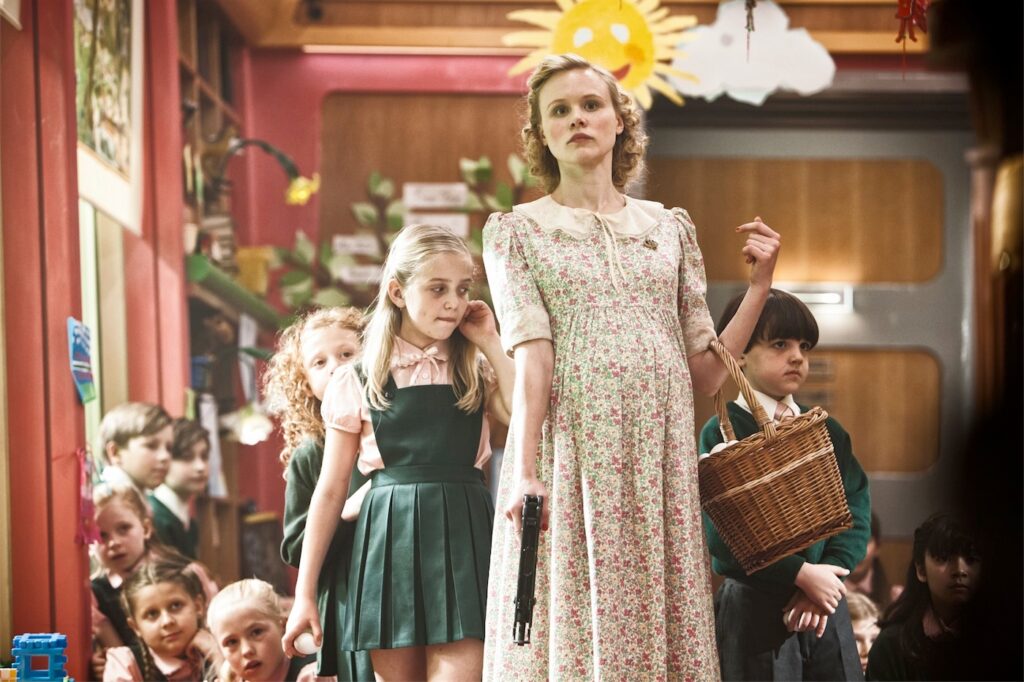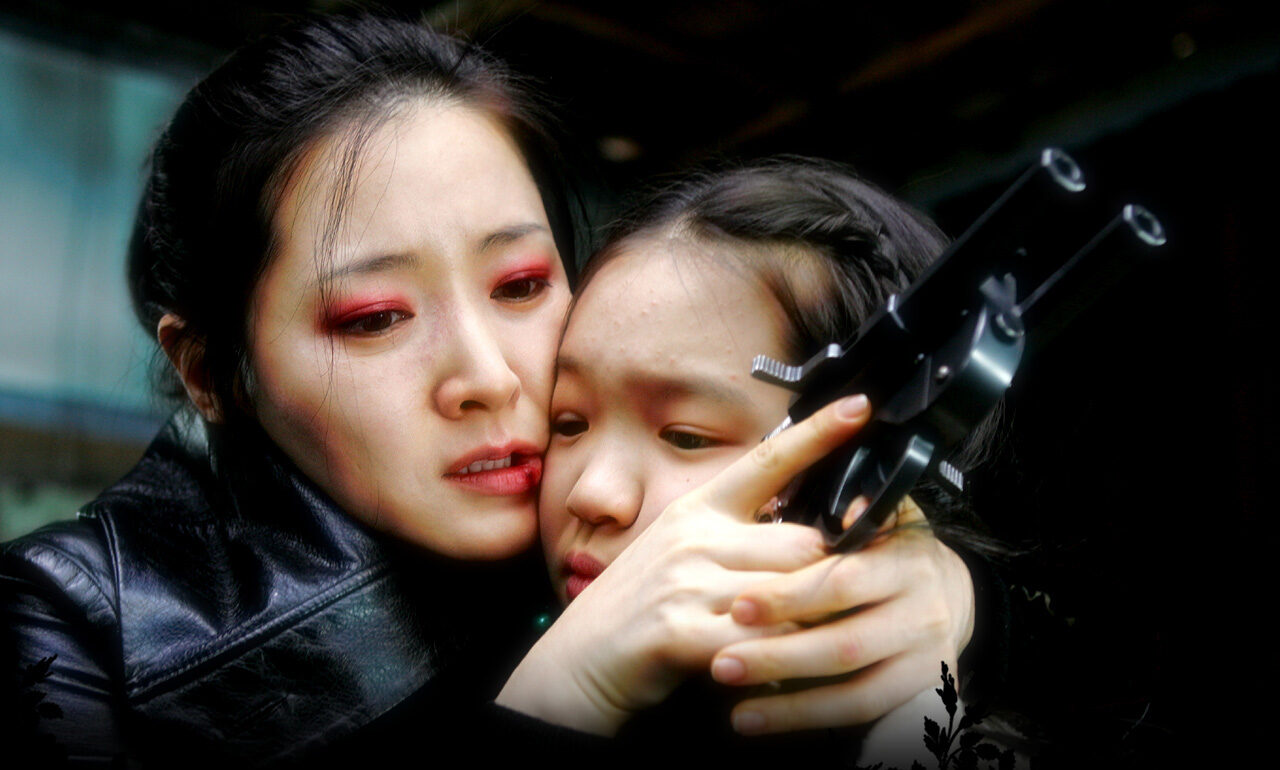Evolution has shown that intelligence can only flourish if a species can avoid being eaten. Nature is violent and those tasked with the future of their kind – mothers – can be counted on to go to any and all extremes to preserve it. There are countless documentaries full of gripping examples of mothers’ cleverness and steely resolve when made desperate by circumstances to defend their brood: from orca pods splitting up to deceive hunters to lion moms creating distracting predators at the risk of their own lives, from penguins protecting fragile eggs in Arctic climates to Katie Holmes, we see the constant struggle of childrearing through the most loving of lenses. How many times have we seen (badly edited) scenes on those same documentaries of cute baby animals stalked and cruelly eaten by predators? What could be more instinctive than to root for the mother’s lifesaving intervention?
I suggest that this powerful response is beyond human and likely spans a multitude of species. It seems truly universal, and makes the manipulating the beats in a film script relatively easy. If one agrees that most stories revolve around “family” and also enjoys the catharsis of a rough-and-tumble tale, then just add an element of revenge to the plot and you have arrived at one of my favorite sub-genres of film, the mom revenge flick. It’s always a bit of a cheat to endanger kids for the sake of a story (aka the Dennis Lehane Effect), but it seems legitimate in these cases as they mirror the intense duality of real life: the doting mothers who give birth to us would fight violently and even die to protect us.

This week I’d like to mention three films that I have have deeply and repeatedly enjoyed in the hopes that you might view one, two, or all three yourself. The odds are good that most folks will have seen one of these but I’m promoting the full trio in the belief that this trope is a rich and endless souce of good stories, and that those stories can be deeply satisfying.
GORGO (Eugène Lourié, 1961)
The Plot: I believe the best description is this one from IMDb:
Greedy sailors capture a giant lizard off the coast of Ireland and sell it to a London circus. Then its mother shows up.
I would just add that an Irish kaiju trashing historical buildings in London seems a little cheeky and adds a whiff of humor to the destruction.
The Hooks: released the year I was born, this shameless gaijin kaiju rip-off was born of the director’s desire to have a happy ending to a monster movie for the sake of his daughter who had cried at the end of his previous film, The Giant Behemoth, when said redundantly-titled creature died. It stars William Sylvester, who later went on to star as Dr. Heywood R. Floyd in 2001: A Space Odyssey, and a guy in a monster suit that is said to have inspired Gene Simmons’ boot design. Gorgo also boasts a surprisingly substantial soundtrack by esteemed composer Angelo Francesco Lavagnino and high-quality cinematography by Oscar-winning DP Freddie Young (Lawrence of Arabia, Doctor Zhivago), two contributors one might not expect in such an unassuming monster movie.
On a personal note, I like that the title creature shares most letters with my first name and loved the ending – a shot from the smoking shore of reunited mom and li’l Gorgo walking into the sea – so much that I cried because of a film for the first time.
The Audience: fans of Godzilla, MS3TK.
KILL BILL (Quentin Tarantino, 2003/2004)
The Plot: a female assassin (Uma Thurman) known simply as The Bride for the bulk of the film has been recruited and trained by Bill (David Carradine) for his crime crew (Michael Madsen, Daryl Hannah, Vivica A. Fox, Lucy Liu). She tries to go straight and get married but instead ends up in a coma thanks to Bill’s jealousy. She was pregnant at the time and when she awakes she seeks both revenge and her daughter.
Written as an ode to his single mom, the ultimate point of the story is profound: the world’s greatest assassin, with a world of choices at her fingertips, chooses to be a mother to her daughter. Of all the jobs in the world that she is eminently qualified for, she chooses the most loving and nurturing one.
The Hooks: this is Tarantino’s opus, a two-part extended odyssey of flashbacks and bloodshed, bursting with snappy dialogue and gallons of gleeful bloodshed. The plot structure is simplicity itself: The Bride systematically works her way up the crew, killing them one at a time, ending with the death of Bill and the reuniting with her daughter.
It’s in the ornamentation and fleshing out of this narrative that QT excels, keeping the story relatively straightforward and constantly moving, while exploring the finer details and back stories in a way that reinforces it. The A-list production features some classic RZA samples, Gordon Liu in two roles, Chiaki Kuriyama in what were originally twin roles (the discarded twin character gifted by QT to director Takashi Miike for his possible future use), an homage to Lady Snowblood, and a memorable late-period performance by David Carradine.
One of the scenes thus described involves Bill’s childhood mentor reminiscing on Bill’s first Hollywood crush. For film fans (like Quentin), this offers a sympathetic glimpse of a killer’s more innocent youth as well as being an interesting question for the viewer as well (mine was Pam Grier in Scream, Blacula, Scream). It’s those dozens of little hooks that help the plot get under your skin.
The Audience: fans of QT, Lady Snowblood, ’70’s Japanese action films, or East-meets-West mash-ups.
(Sympathy for) LADY VENGEANCE (Park Chan-wook, 2005)
The Plot: the third and final film in Park’s “Vengeance Trilogy” tells the story of a young woman, Geumja, who is made pregnant by an older teacher who, unbeknownst to her, also happens to be a serial child-kidnapper and -killer. He ships her newborn daughter off for adoption and sets Geumja up to take the fall for one of his murders, threatening the life of her child to ensure her silence. After befriending a number of critical future collaborators while imprisoned, she calls in her favors to find her daughter, capture the killer, and get justice for all the aggrieved parents.
The Hooks: stylistically, I don’t think there is a finer living director than Park Can-wook and this film – possibly my favorite of all time – beautifully displays his confident craftsmanship.
There is a moment when one of her prisonmates questions why she requires such an ornate weapon to be made and she replies that everything should be beautiful. I think this encapsulates Park’s aesthetic nicely: no matter how distressing the details, no matter how much woe infuses a scene, it’s going to look gorgeous.
Of these stylistic inventions, the grandest is that some versions of the film slowly become desaturated and end up black-and-white wih only spots of color. This serves to beautifully underscore the moral of this film: though the process of seeking revenge can consume and obsess, once it’s obtained it’s a hollow victory that leaves the taste of ashes in one’s mouth.
Not content with giving us eye candy, Park Chan-wook tickles our ears as well. His taste in soundtrack music tends to run to the classical and here the MOHO Quartet do themselves proud with their equally impressive performances of music written for the film as well as pieces by Vivaldi, Paganini, et al. The soundrack always seem to float above the action, never weighing it down with the ponderousness of being so obviously “classical” (my one line Kubrick critique).
Also of note is what I call The Korean Plot Structure which runs like this:
Part 1: hectic, frenetic, a little humor, a real feeling of being on a rollercoaster
Part 2: something heavy happens to darken and slow the mood
Part 3: things quickly spiral downwards to Hell
and in Lady Vengeance, the Part 2 is the most intense of any I know. I’ve seen this classic four times in a theatre with friends and other audience members and at each viewing looked around during this scene. My favorite memory is of a friend of friend laughing and raising their beer mug…becoming somber and wide-eyed at the twist…and putting the beer down, unsipped, minutes later.
The Audience: fans of Oldboy, Korean/Asian cinema, Martin Scorsese, Ari Aster, Quentin Tarantino, and art house cinema.
If you think that fighting mom films might be your cup of tea, here are a few other films I think you might enjoy:
– SERIAL MOM (John Waters, 1994)
– MOTHER (Bong Joon-ho, 2009)
– FURIE (Le-van Kiet, 2019)
Thank you for reading.
Screencap of Alison Pill and students from SNOWPIERCER (Bong Joon-ho, 2013)

Leave a Reply
You must be logged in to post a comment.